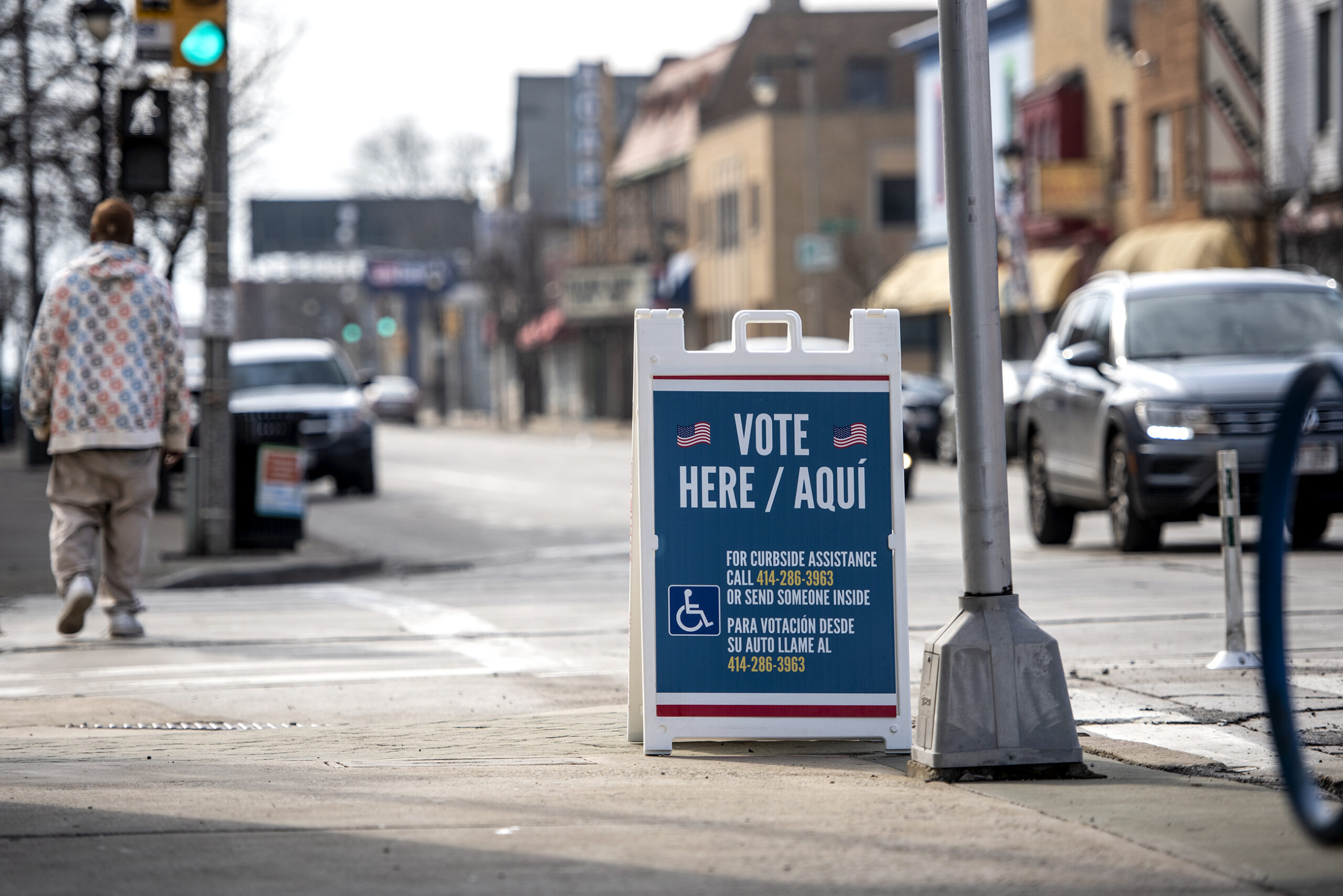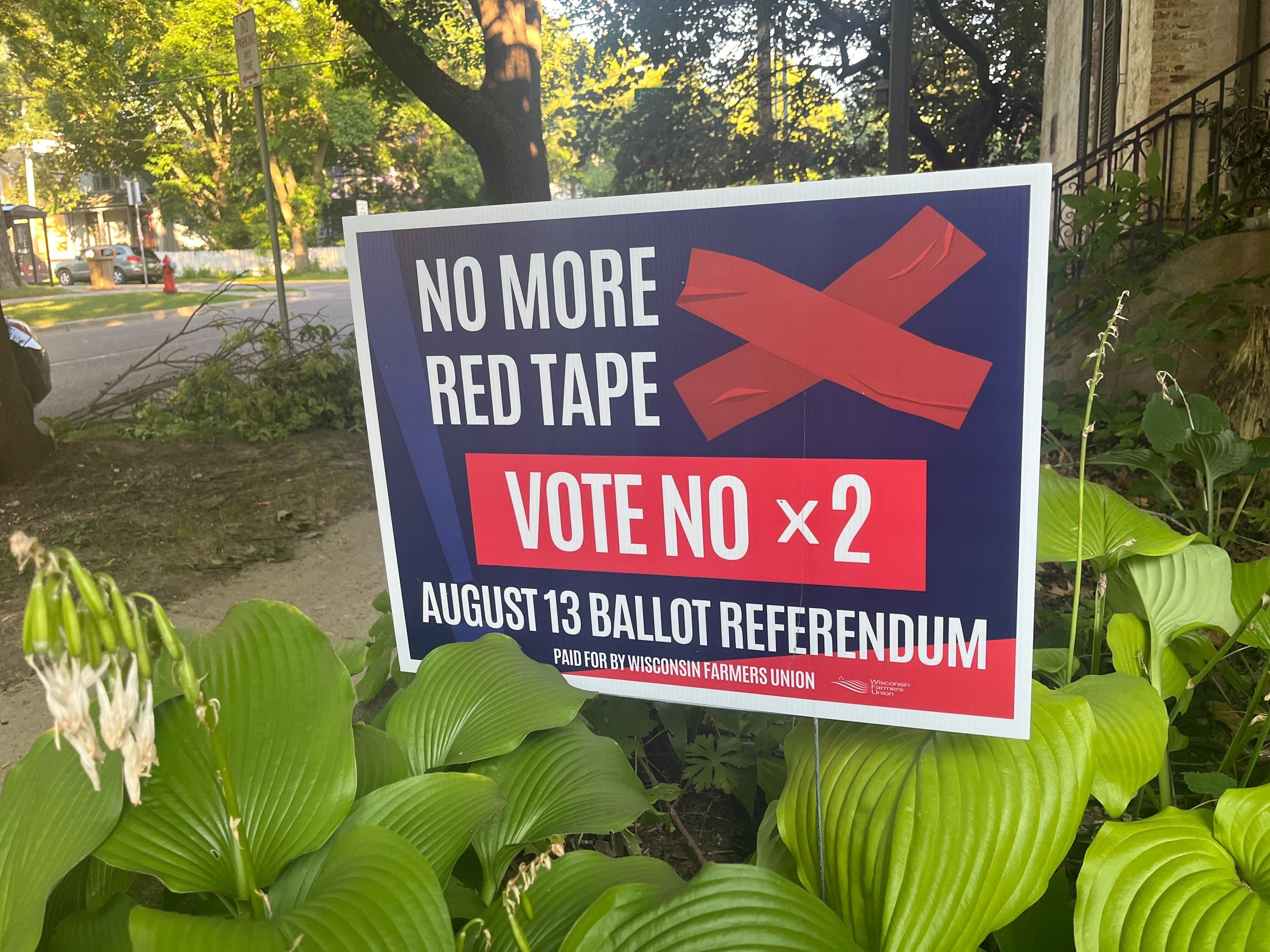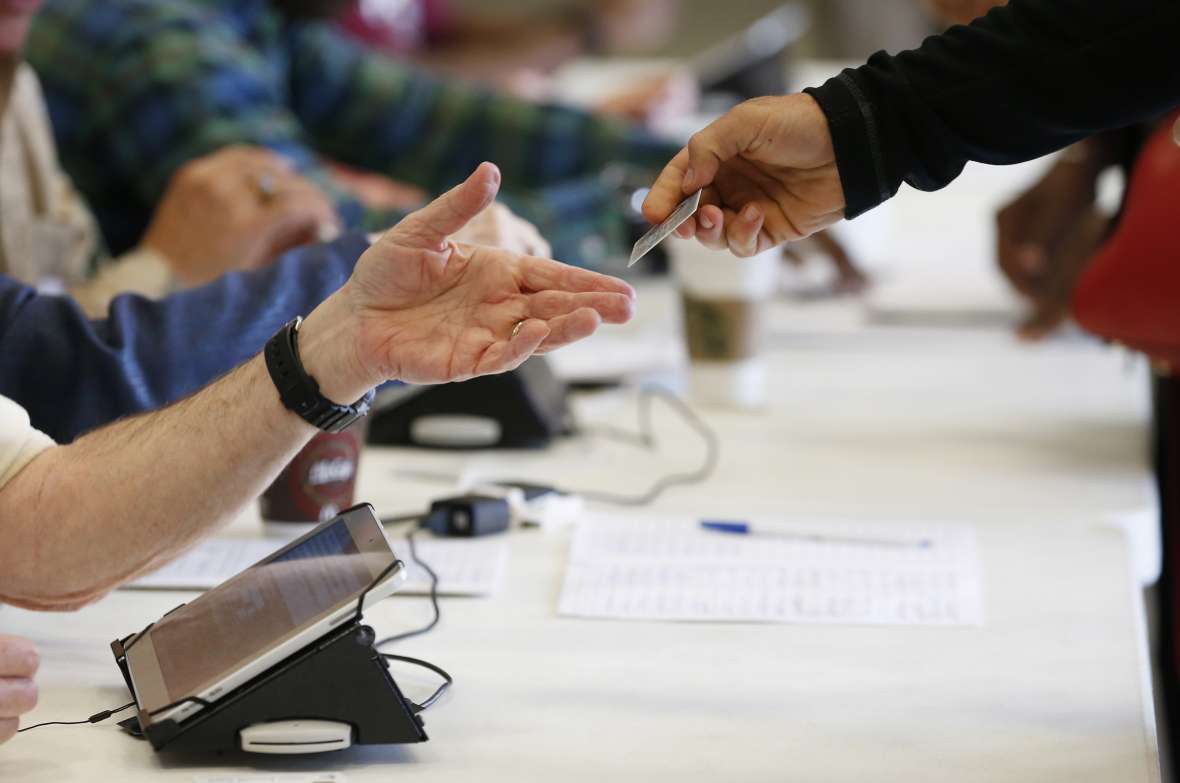Voters will decide two referendum questions in the April 2 primary that could affect how Wisconsin elections are run for years to come.
Both referendums ask voters if they want to amend the Wisconsin Constitution. One would bar state and local governments from using private funds to conduct elections. The other would say that only election officials can conduct election-related tasks.
Here’s a breakdown of what each proposal would do.
News with a little more humanity
WPR’s “Wisconsin Today” newsletter keeps you connected to the state you love without feeling overwhelmed. No paywall. No agenda. No corporate filter.
Restricting private funds in elections
The first question asks whether private funds should be allowed for use in election administration.
A yes vote would mean that election administrators could not apply for, receive or use private donations or grants for elections. A no vote would mean such funds would continue to be allowed.
Supporters of the amendment argue outside money can “create undue influence on elections and the work of election officials,” said Emily Lau, a staff attorney with the University of Wisconsin-Madison’s State Democracy Research Initiative. Lau said that can hamper trust in elections.
Those opposed to the amendment say election work is underfunded, which sows distrust as well.
“There are concerns that bans on private funding without accompanying guarantees of adequate and sufficient public funding could impede the work of election officials,” said Lau.
The amendment would also bar governments from accepting donated equipment. Lau said that opens some ambiguity about what constitutes election equipment — whether, for example, hand sanitizer for poll workers would be in the same category as ballot counting machines.
The question stems primarily from concerns that emerged in 2020, when polling place needs were significantly altered by the COVID-19 pandemic. According to Lau, a variety of private entities and individuals contributed things like masks, the use of larger spaces for social distancing and money to upgrade equipment.
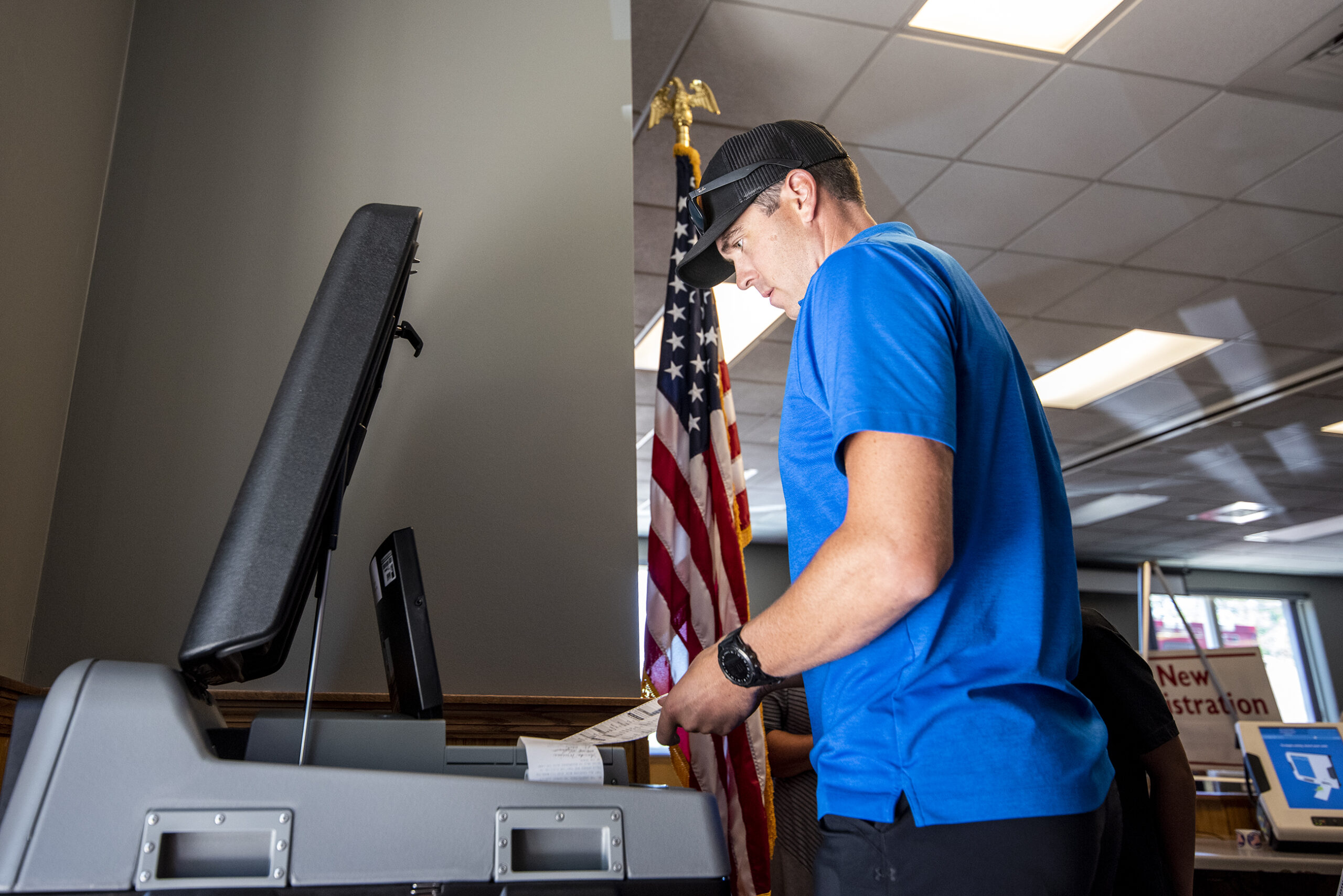
Millions of dollars in grants donated by an organization supported by Facebook founder Mark Zuckerberg came under particular scrutiny. That funding, which was allowed by both state and federal court rulings prior to the 2020 election, was used across the country, including by about 200 jurisdictions in Wisconsin. It quickly became known among Republicans as “Zuckerbucks.”
Some supporters of former President Donald Trump argued those funds were used to hijack the election by promoting voter turnout in larger cities with a high concentration of Democratic voters. Democrats called that argument a red herring, used to undermine faith in elections.
While Lau said there has been no evidence that those private funds influenced the outcome of the 2020 election in Wisconsin, she said they can still give an appearance of outside influence.
“Even if elections are being run in a completely aboveboard way, there’s this appearance of that outside influence, and that impacts voters’ trust in elections, regardless of whether or not the funding is nonpartisan, or if it’s coming from an individual donor or from an organization,” she said.
Restricting who can work on elections
A yes vote on the second question would determine that “only election officials designated by law may perform tasks in the conduct of primaries, elections, and referendums.”
Supporters of the proposal say it will clarify who is allowed to take on key tasks of election administration. When it was debated in the Legislature, Republicans said the goal is to prevent private consultants from having too much power over elections.
Opponents say the language of the proposal isn’t clear enough because it doesn’t define which activities are “in the conduct of” elections.
“This amendment has a lot of different possible interpretations,” said Lau. “It’s just unclear how narrowly or broadly the amendment would be interpreted.”
A law already exists saying only election officials can conduct elections in Wisconsin, she added. Lau said the latest proposal could be interpreted so broadly as to exclude volunteers like voter education workers or municipal staff who are not sworn election officials but are used in the quotidian tasks of election administration.
If the proposal passes on the ballot, a court would likely need to decide both which activities and which type of workers are implicated, said Lau.
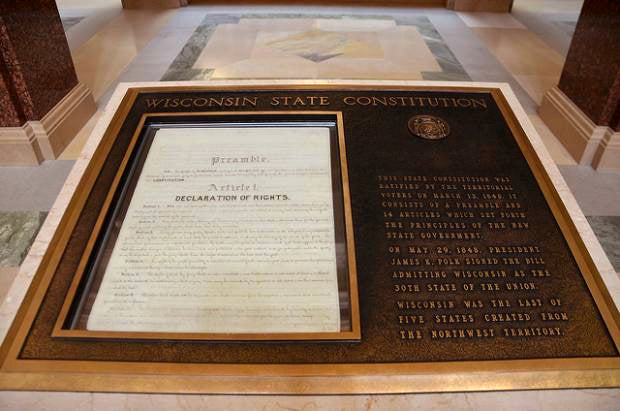
Constitutional amendments follow a different process than normal bills
These proposals, if passed, would take effect almost immediately, and would not be subject to a governor’s veto.
That’s because they’ve been proposed as constitutional amendments, rather than ordinary bills. They already passed two consecutive sessions of the GOP-held Legislature. The voting public is the final step.
If passed, they would go into effect almost immediately, and be in place for both the August primary and November general elections. If voters reject the referendums, those elections and others could be run under the old rules, meaning private funding and consultants would be allowed.
Wisconsin Public Radio, © Copyright 2026, Board of Regents of the University of Wisconsin System and Wisconsin Educational Communications Board.

